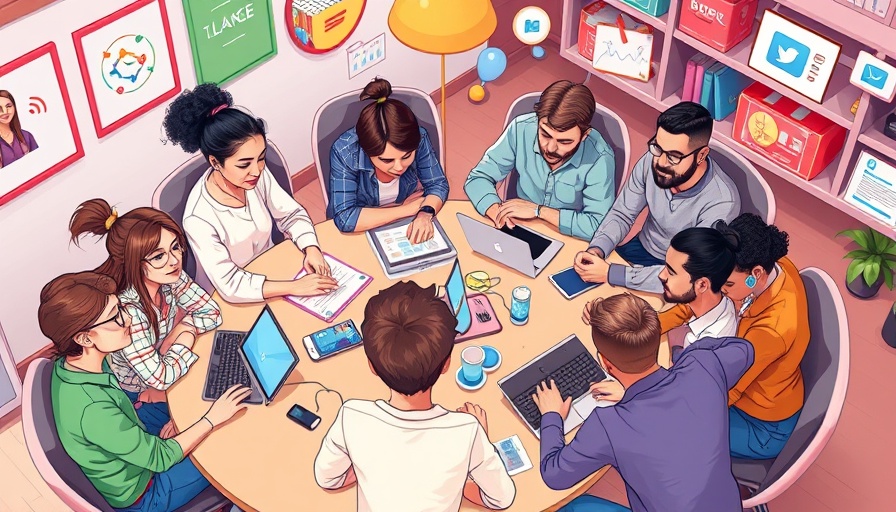
The Future of Work: Embracing AI and Remote Teams
As companies explore the evolving landscape of work, the integration of AI teammates and fully remote operations is becoming increasingly prevalent. During a recent episode of the GeekWire Podcast, Microsoft CEO Satya Nadella shared insights on how AI is revolutionizing organizational structures. This vision aligns with a future where employees manage AI agents, radically transforming the way teams function and communicate.
The Rise of AI: Transforming Workplaces
Artificial intelligence is no longer just a concept; it is a reality reshaping various aspects of our lives, from travel planning to managing workloads. As Nadella articulated, the concept of humans as 'agent bosses' suggests a shift from traditional management roles to a new model where employees oversee autonomously functioning AI systems. This presents a human-AI collaboration model that fundamentally alters our approaches to teamwork and productivity. The implications of this change extend beyond mere efficiency; it raises questions about the dynamics of leadership and how organizational hierarchies may transform.
Chainguard: A Case Study in Fully Remote Success
The podcast further examines Chainguard, a cybersecurity startup valued at $3.5 billion, which exemplifies the power of remote work without physical offices. Chainguard operates under a remote-first model that emphasizes intentional communication and strategic in-person gatherings. Their growth from a mere startup to a unicorn showcases that high performance and innovation can thrive outside the confines of a traditional office. This case serves as an inspiring blueprint for other companies considering similar paths.
Challenges and Opportunities in Remote Work
While the remote work model garners positive attention, it is not without challenges. Employees often grapple with feelings of isolation and burnout, raising concerns about their mental health and productivity. According to experts in the field, the key to maintaining engagement lies in creating a supportive remote culture. Strategies such as regular check-ins, opportunities for social interaction, and prioritizing mental health resources are essential for a thriving remote workforce.
Insights on Future Trends in Working Environments
The future of work promises exciting changes, but it also beckons us to embrace adaptability. From hybrid models to AI-assisted workflows, organizations are exploring various innovative frameworks. It’s crucial for leaders to remain open-minded and proactive in redefining roles while ensuring that human needs are placed at the forefront of evolution.
A New Perspective on Productivity
Understanding how AI and remote work intersect provides vital insights for both employees and leaders. The focus should be on leveraging technology to augment human capabilities rather than replace them. This perspective fosters a workplace culture that encourages creativity, collaboration, and well-being, thus paving the way for a more balanced work-life integration.
Concluding Thoughts: Navigating the New Normal
The integration of AI teammates and the widespread adoption of remote work signify a significant shift in the world's professional landscape. As we navigate the new normal, it’s imperative to adopt best practices that support employee well-being while fostering productivity. Companies like Chainguard provide hopeful examples of how organizations can succeed without a physical presence. Embracing these advancements responsibly will shape the future of work substantially.
 Add Row
Add Row  Add
Add 




Write A Comment